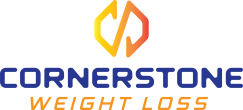Waiting Too Long To Eat
“I did it again,” the client explained.
“How many times do we need to go through this?” I pleaded.
“Eating just escaped me yesterday.” she said, “when I got home and put everyone to bed, I ate. Then I kept eating. Now I don’t even know how to start damage control.”
How many times have you waited too long to eat and ended up gorging yourself at mealtime?
It happens to all of us and the reasons vary.
Eating at agreeable times is a tactic that can help your longterm weight loss strategy. But, when time escapes you it has negative consequences.
This short blog post will help you through times you have waited too long to eat which led to overeating later. Additionally it will give you a few common sense, yet overlooked, tools you can use today to stop this from occurring. Get them under your belt and you’ll be one step closer to better understanding how food affects your body to put you in control of how you look.
Let’t get to work!
I Don’t Want Breakfast
Breakfast is a common problem for many.
Some of you are not hungry in the morning and that’s not abnormal. But, there are plenty of gurus out there that preach the gospel of a benevolent breakfast. Claims of metabolic boosts and hormonal benefits run amok in their content. Some will try to get you to force-feed something -anything- in the morning.
This is unnecessary and here’s an example why.
*Side note: if you find yourself lost in the nutritional myths of Yo-yo Diet Profiteers, click here for tactics to overcome them.
Avoiding breakfast, however, comes with two challenges:
- You can find yourself overly hungry for too long.
- When you do eat, you overeat.
You can avoid these pitfalls with either a light breakfast when you’re ready to eat or supplementation, let’s explore these now.
What is a light breakfast?
This is subjective, but here’s a way to look at it that may help you. Feel free to disregard this if it doesn’t work for you.
Let’s say you’re first meal is 700-1000 calories. For simplicity, we aren’t going to discuss the macronutrient breakdown.
Eating 30% (that’s 210-300 calories) of your first meal as soon as you get hungry can make a difference. It can help you from overeating when you decide to eat. Also, it does not remove so much from your first meal to make it unsatisfying.
Lastly, 30% is not a fixed amount. There is no magic in that number. Placing undue importance on 30% means you’re drifting into guru-following territory.
Please don’t do that.
If making a lighter meal just isn’t what you want to do, let’s look into supplementation.
Supplementation
There’s a near endless amount of dietary supplementation out there. None of them are one-size-fits-all.
You’ll read in some other blog posts here that Quest Bars are encouraged. This is because of their high dietary fiber content that keeps you full.
You ought to pick the supplementation that’s right for your life and weight loss goal. This could mean that you have an assortment of different brands depending on their utility.
For example, if you decide to not go with the light breakfast option, yet you need something that gives you the best energy for your late-morning workout, you’ll likely need a mix of simple carbohydrates and protein.
On the other hand, if you’re just trying to make it to your next meal, a higher-fiber option may be your best bet.
Drinking your supplementation may also be a good option. For some, however, there are stomach irritation complications that come with meal shakes. This challenge seems to compound when you use them on an empty stomach.
If you are having problems deciding whether you ought to use solid food or liquid supplementation, this blog will help you.
Training Yourself To Eat Tactically
There’s a trap of not wanting to try something unless you are certain it will work. This is understandable because you want to achieve your goal.
This is where both analysis paralysis and stuck in a rut come from.
Either you overanalyze to the point of doing nothing, or you just keep doing the same thing repeatedly without any forward progress.
As you set out to understand how food affects your body, experimentation ought to be part of the process.
It’s essential you internalize how you fare eating -or not eating- at certain times of your day. Internalize, in this case, means that you know and act upon the information you will gather on yourself.
Waiting too long to eat and suffering the consequences is fine a handful of times. But when it becomes a habit it will eventually rob you of your goal.
“‘Keep climbing,’ he told himself.
‘Cheeseburgers,’ his stomach replied.
‘Shut up,’ he thought.
‘With fries,’ his stomach complained.”
-Rick Riordan


